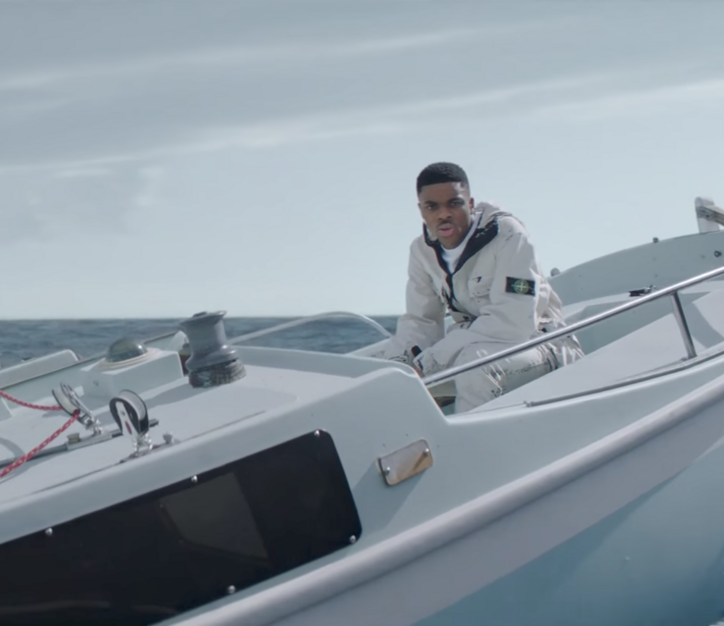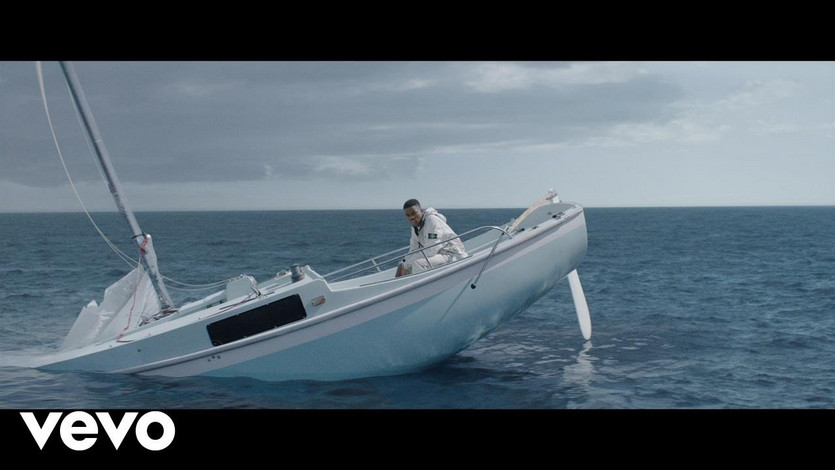Coat, pants and shoes GIVENCHY, shirt and tie PAUL SMITH.
Stay informed on our latest news!
Stay informed on our latest news!

Coat, pants and shoes GIVENCHY, shirt and tie PAUL SMITH.
Hey, how are you doing?
Doing great. It's a good day.
Nice. All right, so who is Asha?
In what sense?
You talk a lot about intersections and how important they are in your music. What intersections do you exist in and where do you see your music?
I'm at the intersection of Soul, Funk, Hip Hop, R&B and Alternative. It's a space that we're creating for people to collide from opposite ends of the spectrum.
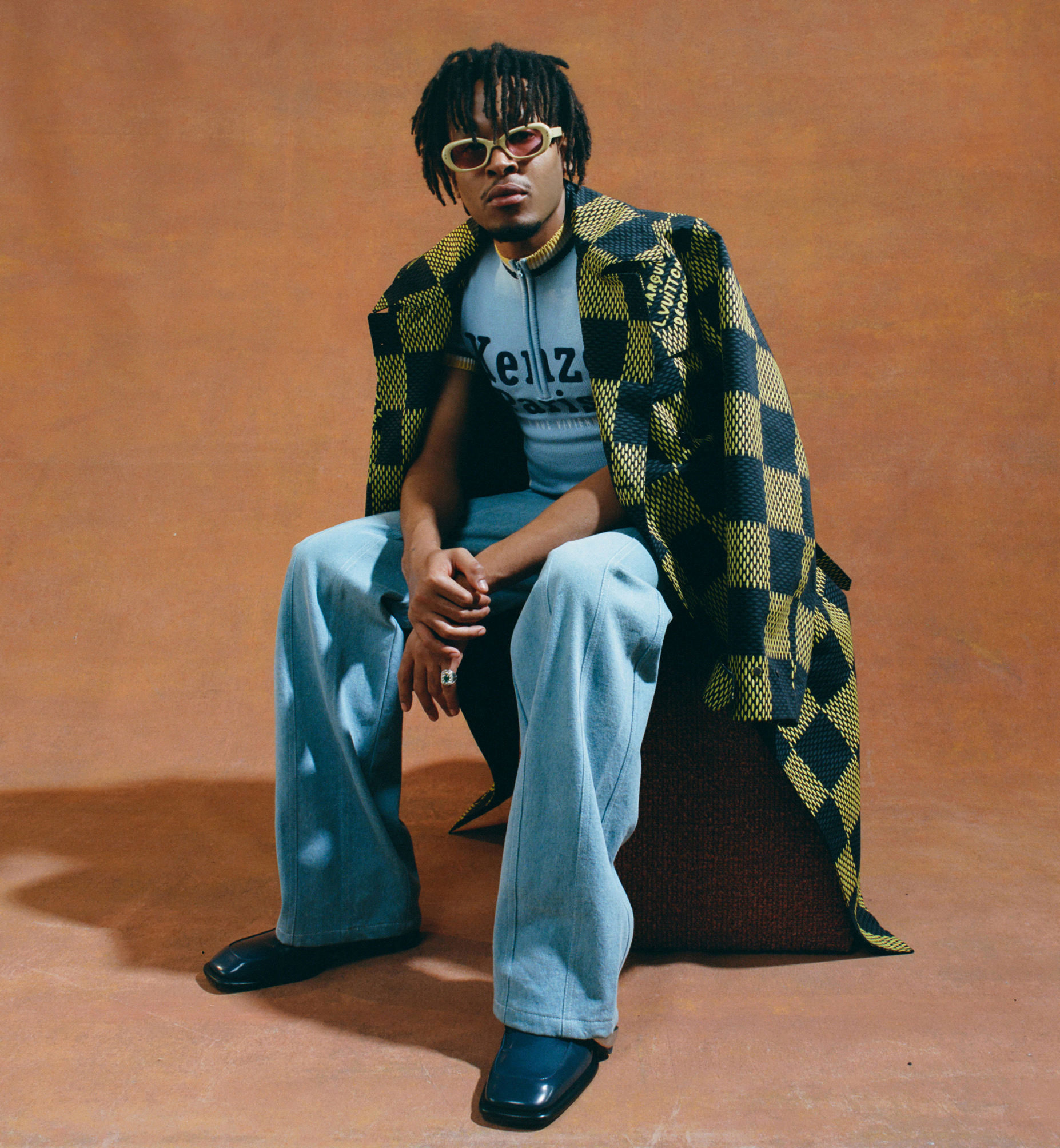
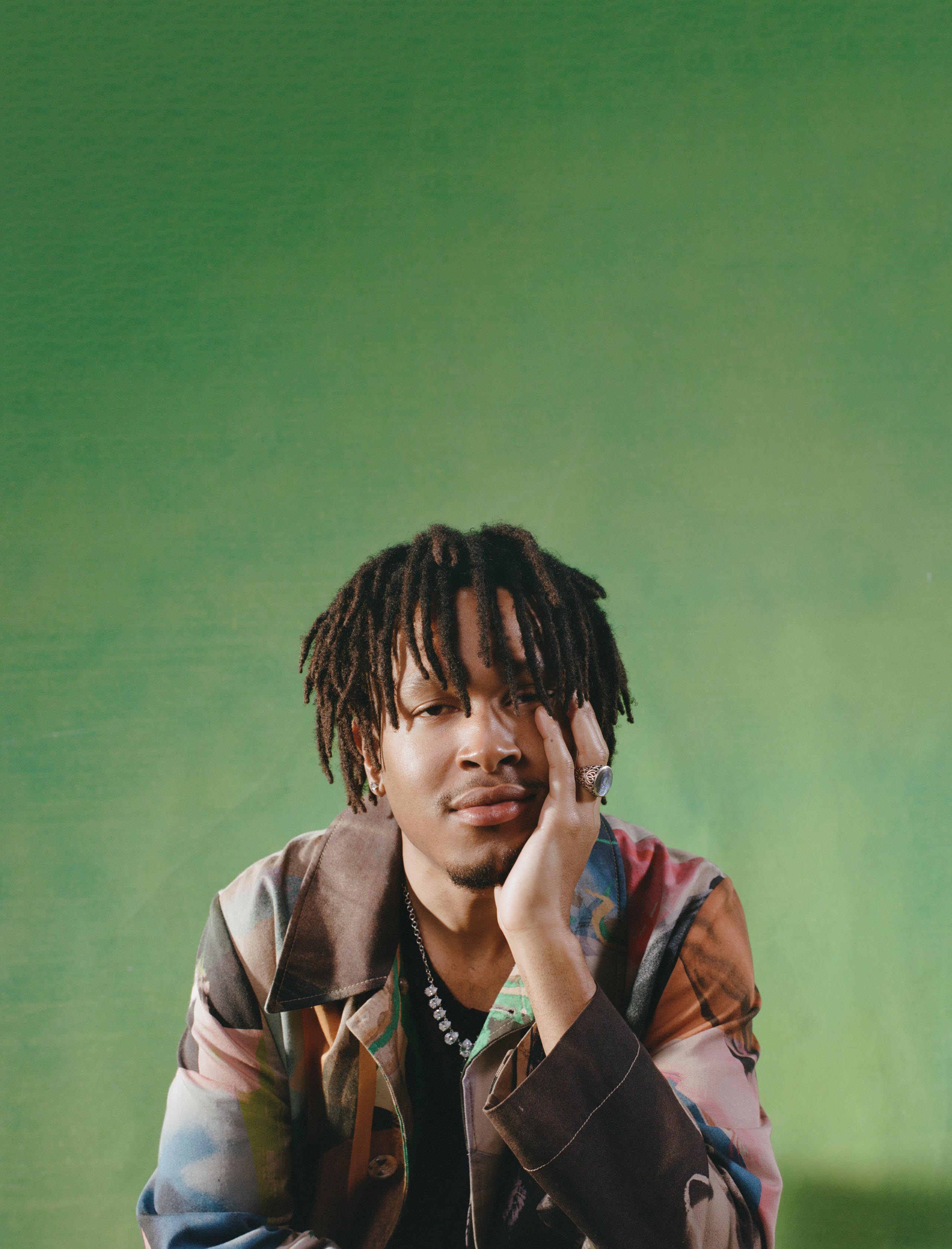
Left: Coat LOUIS VUITTON, top KENZO, pants THEOPHILIO, shoes BURBERRY, sunglasses GENTLE MONSTER, ring VEERT. Right: Coat PAUL SMITH, top MARINE SERRE, necklace VEERT, ring TALENT’S OWN.
How important is community in your artistry?
Community is vital to my artistry. I literally wouldn't be here sitting talking to you in New York if it wasn't for my community. As I grow, it's a hope that my community continues to grow and that my work champions and uplifts other artists. The main difference between PINS & NEEDLES and Good News is my community. It's a combination of three years of me stepping into other artists, producers, songwriters, stylists and photographers worlds and getting seasoned by everything that exists in the spaces between.
I think that joining the KOGO Home was kind of like when things started to get really real and I started to understand where I fit into things a little bit more. It’s wild there, CONNIE could be downstairs doing his thing, producing his Hi_TEK music and Zack Fox is coming through or Matt Ox is coming through but then there's also Alé Araya in the other room working on her music which brings this ethereal, warm, soulful feeling.
There's all of these different worlds and textures that I get to be hearing faintly around me as I’m finding my own shit. There’s also the utility of being able to play your music for another artist who's figuring their stuff out. So, it's this exchange and it's not like a transaction, it's like a friendship, which also makes it more fun.
Yeah, that's really cool that y’all live in an artist community. You’ve been working on these songs a long time?
Three years.
So how does it feel releasing them into the world?
Man, in a lot of ways, it's terrifying because it's like, some of these songs are super personal. A goal with this album was making it digestible so that the first feeling you're met with when you listen to it is joy. But when you spend more time with it, you’ll notice the themes and messages of self acceptance, processing self doubt, processing grief, and just making your way through anxiety.
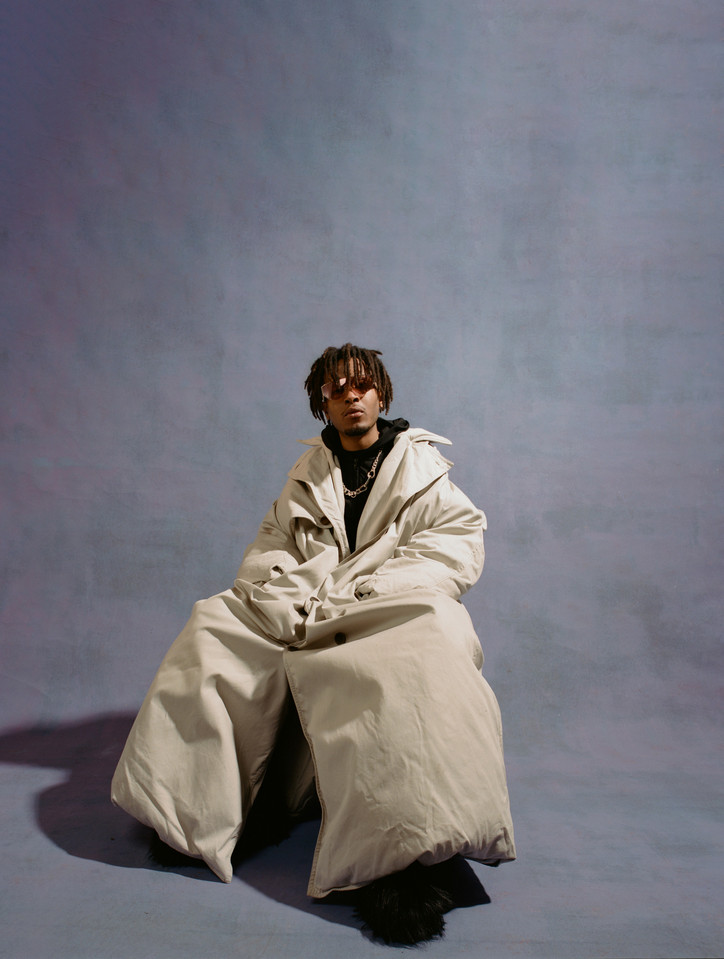
Coat, top and pants BALENCIAGA, boots HERON PRESTON, necklace MARTINE ALI, sunglasses ALEXANDER MCQUEEN.
What does your daily artistic practice look like, and how do you take care of yourself?
My daily artistic practice is a lot of studying. I listen to a lot of podcasts and read a lot of books, especially Rick Rubin’s book, The Creative Act: A Way of Being. That's like pretty much everybody's new textbook. It feels like a holy book. You could keep reading it and open to a random page, and there's insight there for you. It feels like panning for gold. Everywhere I go, I'm trying to find little gems and just that spirit of exploration and putting myself in new situations.
As far as taking care of myself, it's practicing mindfulness, meditation and capturing moments of stillness, trying to be aware of my thoughts. Stuff like that. I think, especially with this album, I've gotten to reckon with things that otherwise probably would have just never been fixed in terms of what sometimes holds me back in that process.
So talking about some of the things that you had to face making this album, what were things that were holding you back in the process before?
I'd be scared to say stuff sometimes, like leaving things vague. I tried to protect myself in my lyrics and didn’t create from a place of complete vulnerability and creative exploration.
I'm singing more than I ever have and just stretching my voice and my production ability more than I ever have, doing things that make me feel like a baby again. And I am a baby in this shit when it comes down to it. Sometimes I’m held back by things as simple as not sleeping for multiple days and things as complicated as addiction, overindulgence, and getting really healthy with my relationships and leaning into family.
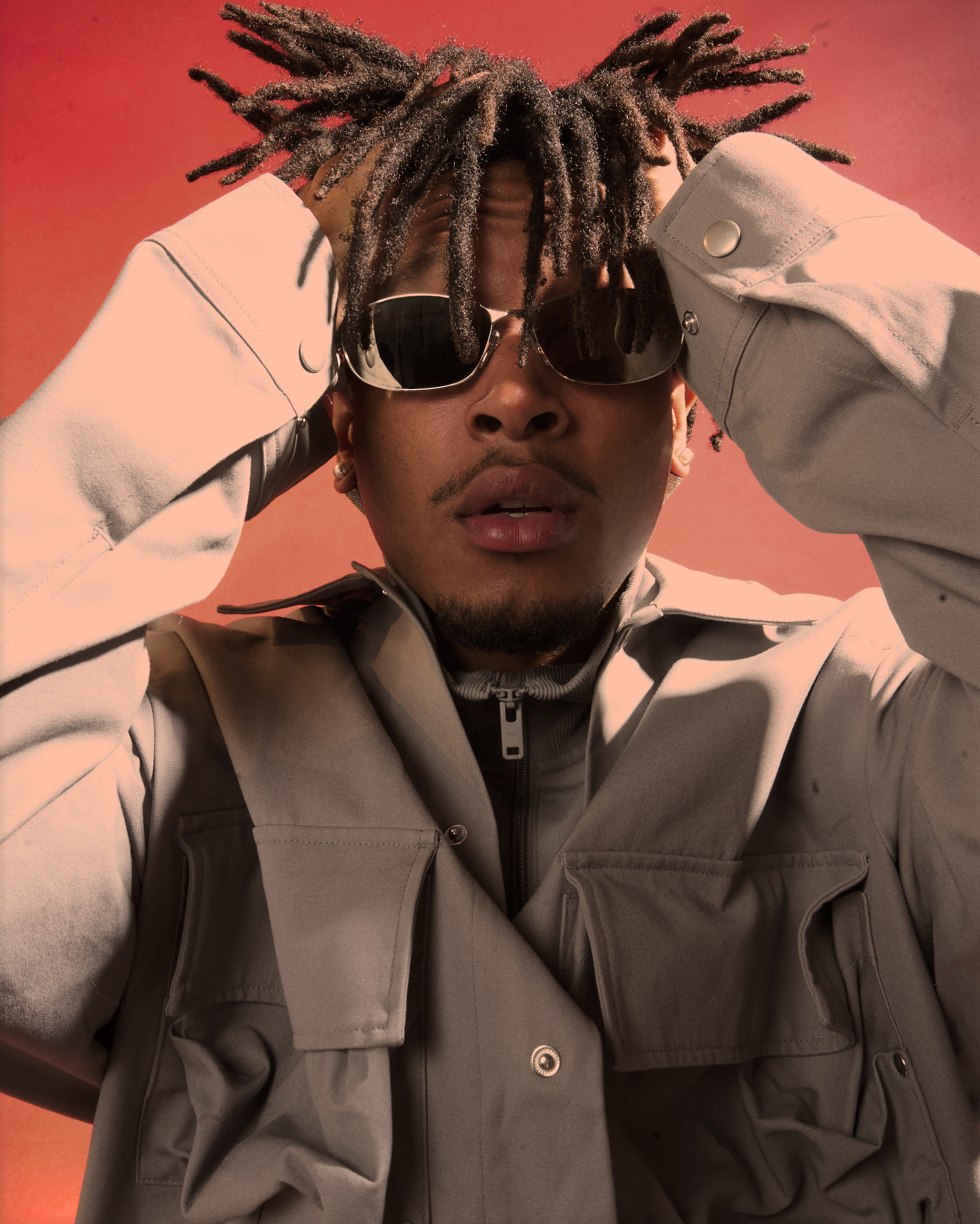
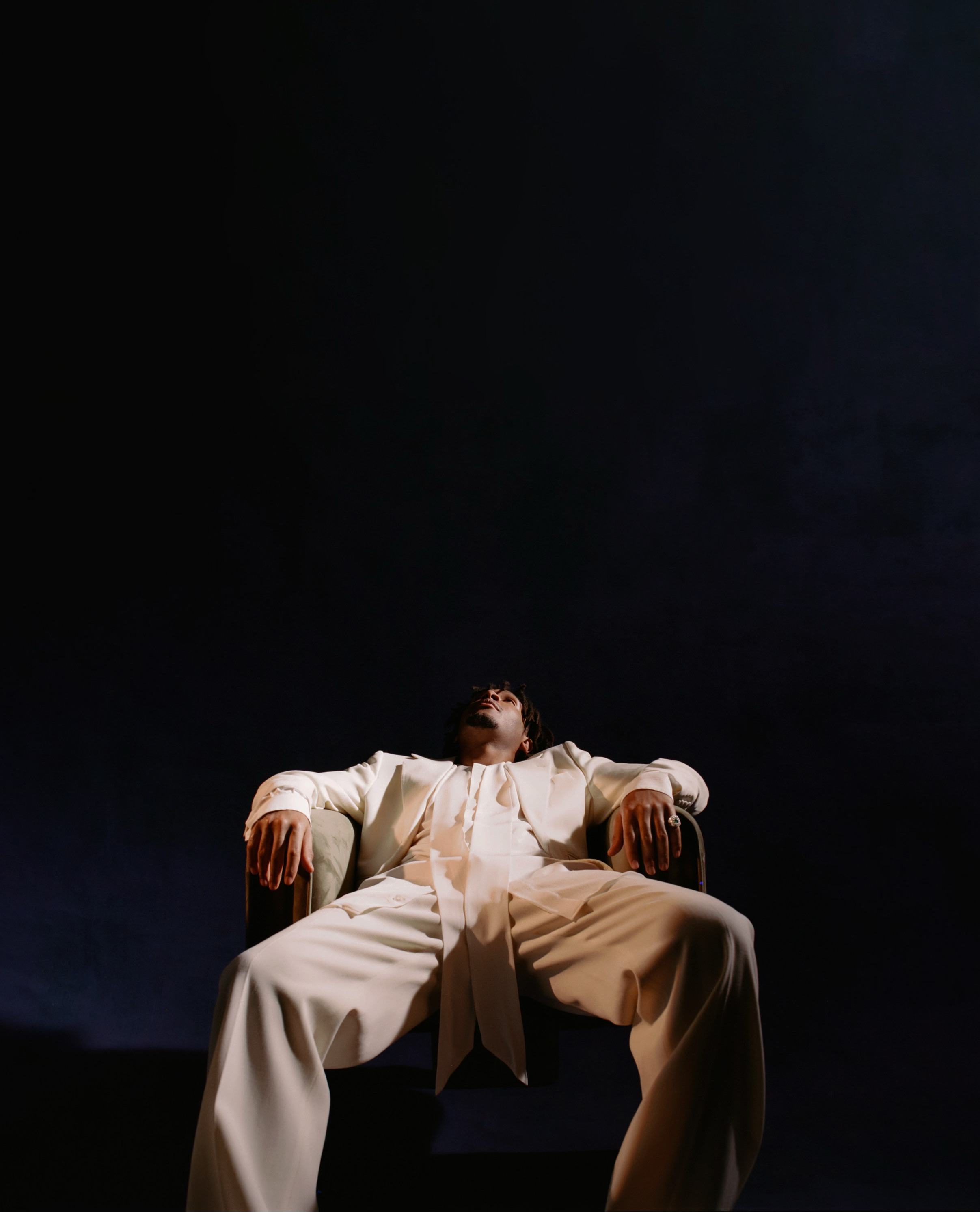
Left: Jacket and top Y-3, sunglasses BALENCIAGA, earrings VEERT. Right: Jacket, shirt and pants DOLCE & GABBANA, ring VEERT.
Is your family supportive of your music career and artistry?
Yeah, definitely. I have a super musical family, so they understand, but in a different way. A lot of my family has a gospel background. My grandmother played piano in churches all through San Diego, and my big brother was a rapper before me. My uncle is a producer, so they kind of loosely get it. But it's a different time now, too, so it looks different. And it's like, when I come home, they just want to know all the cool shit I've been doing in the time between.
But I think topically, covering some things with families can be uncomfortable. Like, there's a song on the album where I talk about when my brother got locked up or the time that I tried acid and it kind of fucked my head up. They get to see an angle of me in the music that they might not get just by talking to me, so it's kind of scary for them too, sometimes.
I know that you've talked a lot about your niece and nephew and how important they are to you. What kind of uncle are you?
Oh, man, I'm the best uncle, bro. I'm the favorite uncle.
Are you the only uncle?
I'm technically the only uncle but I’m the one that comes around with a stuffed animal every time I see you. I’m the ‘let's listen to Jill Scott and Erykah Badu’ type of uncle.
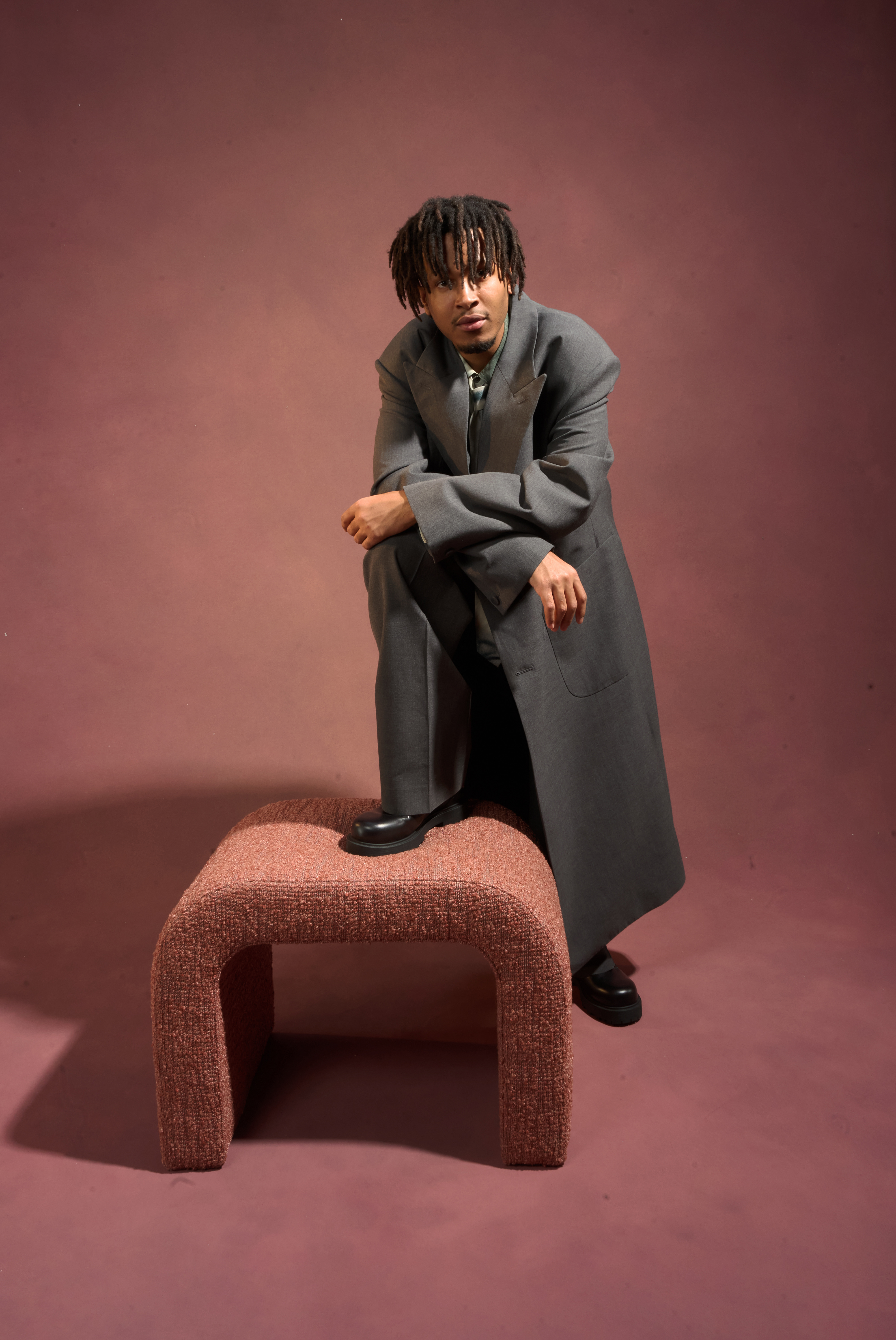
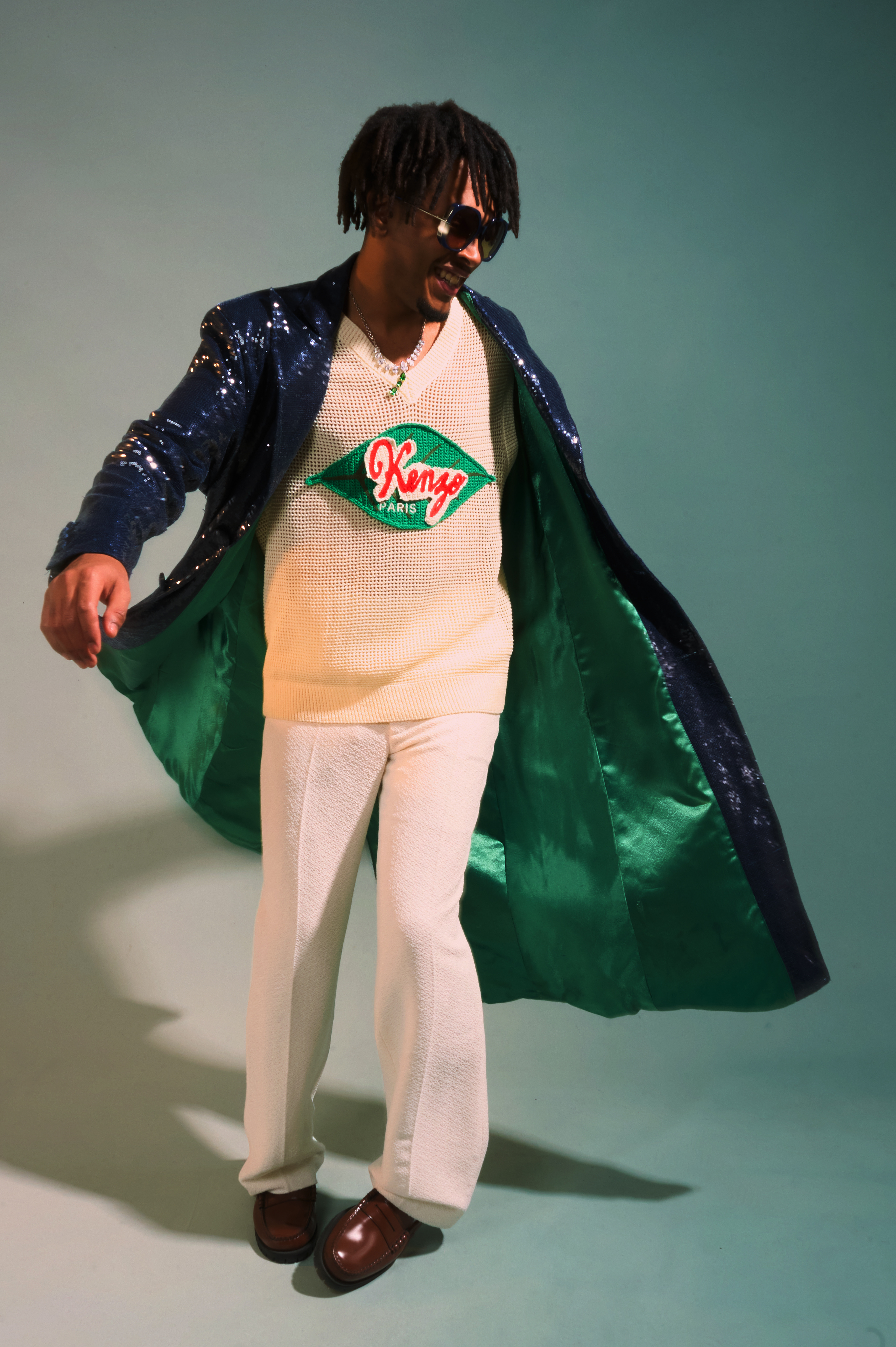
Left: Coat, pants and shoes GIVENCHY, shirt and tie PAUL SMITH. Right: Jacket THEOPHILIO, top KENZO, pants CASABLANCA, shoes SEBAGO, sunglasses MAXMARA, necklace VEERT.
With social media, I feel like artists are expected to constantly be putting work out. How do these expectations influence your process?
I feel like coming up in this era, it feels a little bit more natural, but it's always quality first, and we just try to set things up so that there's as much to share as possible. But I think that I've always been headstrong about making sure that anything that we're sharing feels like it's forever, and it's not just for any given moment.
How do you make forever music?
I think it's just going with your gut, not making the formative decisions creatively from any place other than what's felt.
What music is your forever music?
I really love Sade’s song “Like a Tattoo”, Stevie Wonder’s “Golden Lady” and Jordan Ward’s “FAMJAM4000”. It's music that has a soul in it and can't really be watered down. Forever music, for me, has a specific tone and resonance to it. It's something that speaks to the fabric of who I am.
And that's why I bring up Jordan Ward. Jordan is an artist that I feel is going to be here forever because he's that. I think with the music that I make and that I'm a part of making, I'm always trying to bring out the thing in my collaborators that makes them, them.
What makes you, you?
What makes me, me? Man, I'm curious. I think that's one of the biggest things is like, I could ask a million questions about anything, sometimes to a fault. But I like to explore.
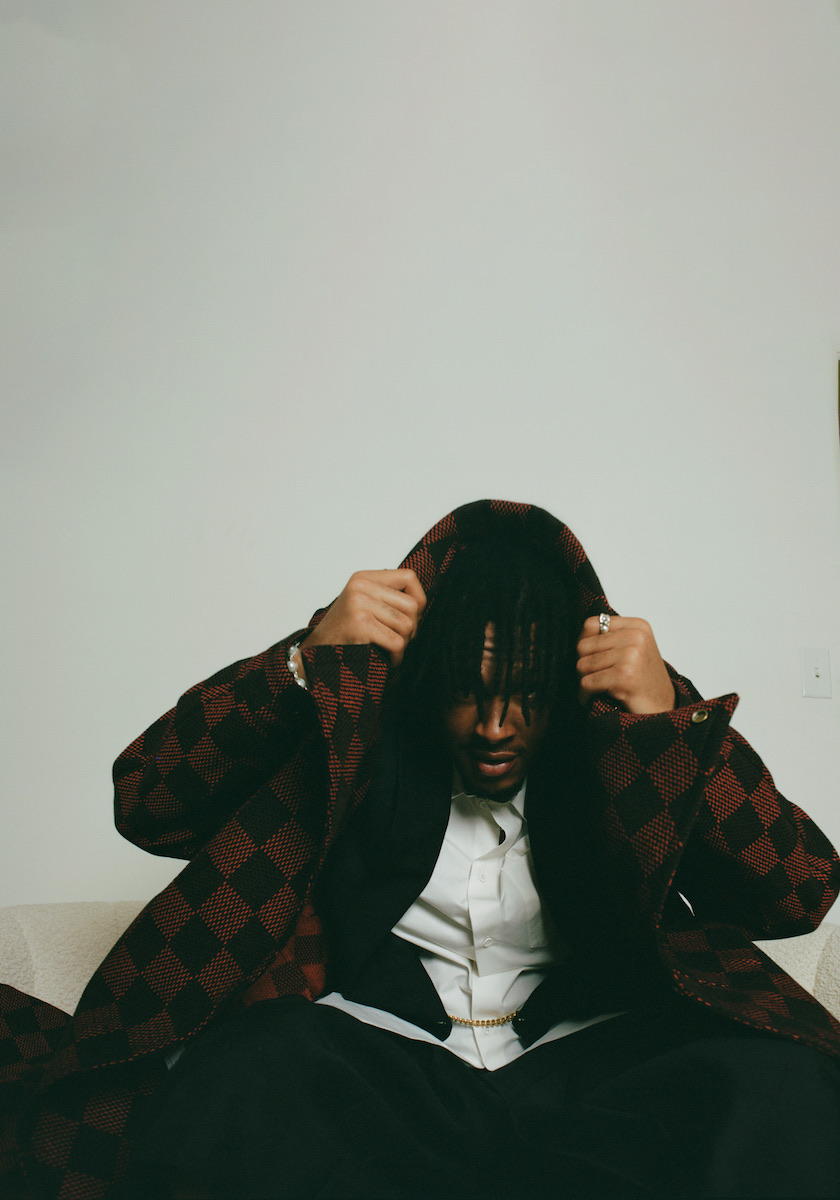
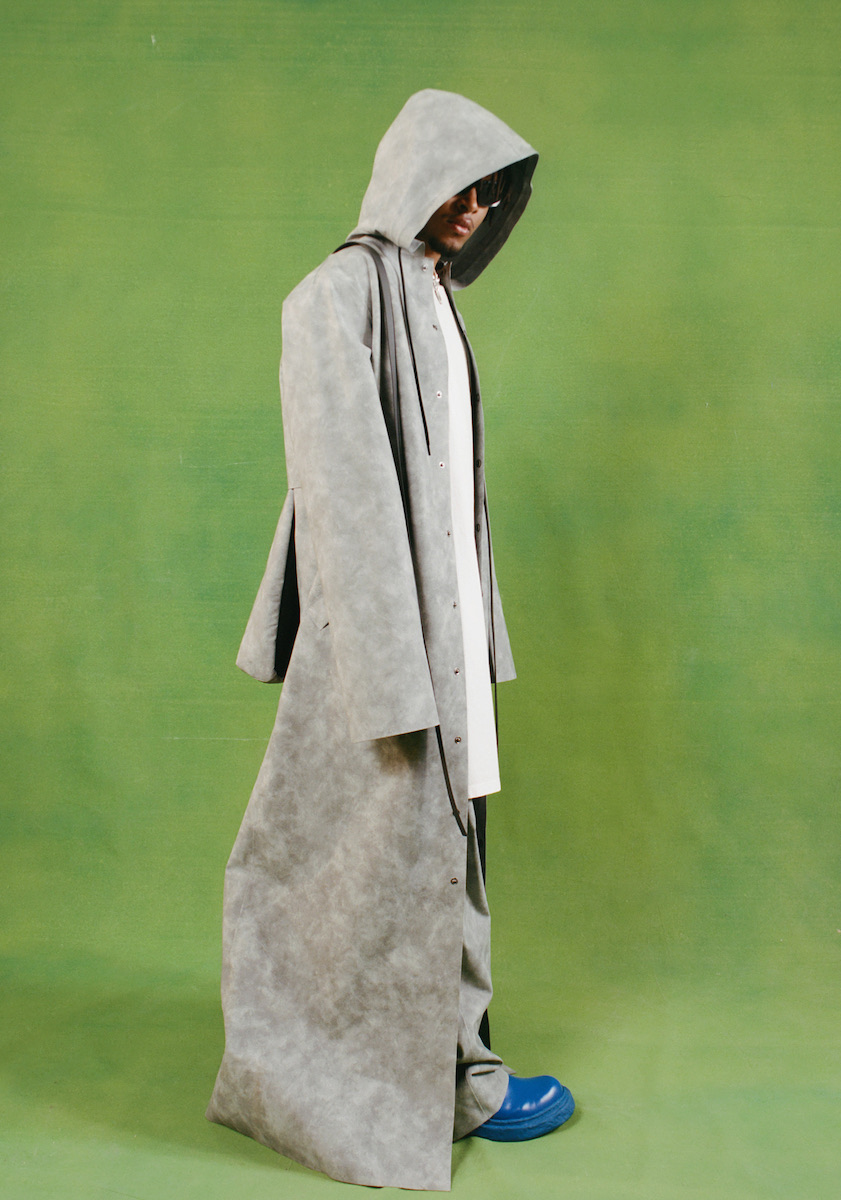
Left: Coat, jacket, shirt and shorts LOUIS VUITTON, bracelet VEERT, ring TALENT’S OWN. Right: Jacket and pants, RAINS, top MM6 MAISON MARGIELA, shoes CAMPERLAB, necklace MARTINE ALI, sunglasses GENTLE MONSTER.
This album explores a lot of different themes and formations of love. Are you pro or anti situationships?
I mean ‘situationship’ has a negative connotation to it, kind of, but I don't think there's a right or wrong way to go about things. It's all about honesty. Are you being real with yourself and the person that you're dealing with? What level do you want to go to? For me, I'm in a relationship right now, and it was one that I wasn't looking for. I stumbled upon it. That's something that's magic. And I think that a lot of what we're looking for is the magical part. I'm pro exploring and just being real. Honestly, because it could be complicated and still be beautiful, you know?
If your album was a cologne, what would it smell like?
Burberry touch, mint.
Quick with it. How did you come up with the title Pins and Needles?
Pins and Needles? Yeah. It kind of goes back to what I was talking about earlier and that sense of discomfort. The album started, actually, while I was working on my last mixtape, Good News, and it was in the middle of the pandemic, and I was literally stuck in one place, but I think I put it on the back burner and came back to it in a place of motion, and it helped me to appreciate that place of stagnation.
I realized that I’m just this imperfect person trying to figure shit out in real time at the moment and that’s where the positive growing pains come in. I think that there's a spectrum of feelings that we have to appreciate in their totality to really get the best things out of life. Because if you live just for the joy or excitement or whatever, everything else is going to suck.
And for me, whether it's dealing with anxiety or trying to hold onto moments of joy and celebration and shit like that, it's all a fleeting thing. And I think that's the main theme of the album, the pins represent that internal struggle and change, while the needles represent the external.
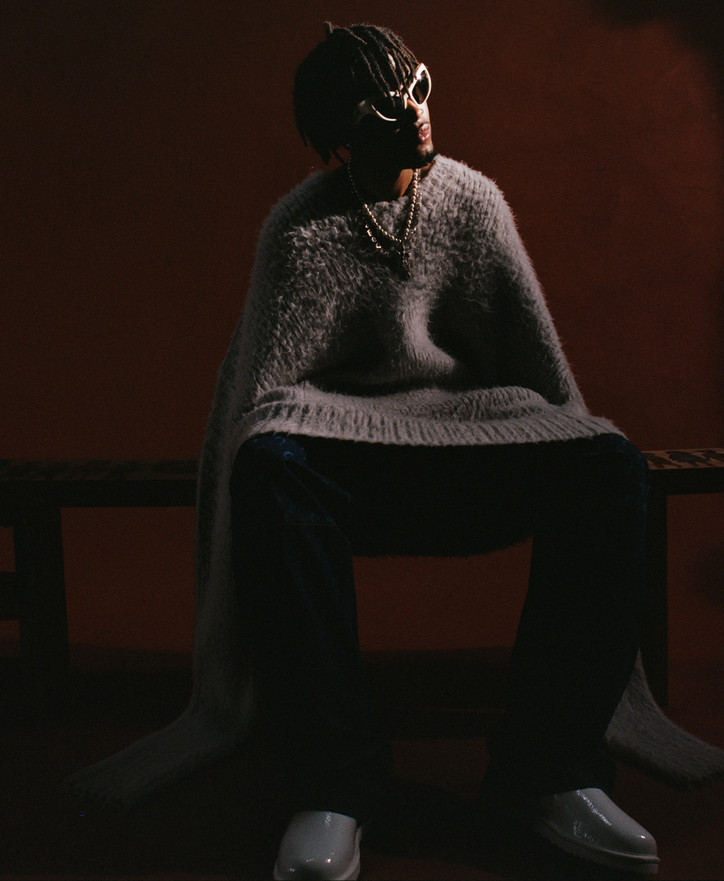
Sweater MR. SATURDAY, pants MARINE SERRE, shoes UGG x TELFAR, sunglasses BALENCIAGA, necklaces and earrings VEERT.
What are your favorite bars on the album?
I'm scanning through because I have my favorites for sure. I'm trying to think of the ones that feel like they kind of represent the feeling, too, but… Oh my God, on “DID I CALL AT A BAD TIME?”, Rizz Capolatti says “Pop out with some out of pageant/Pop out with some out of magic. No, look, I pass it like magic/ While I do racks, I do magic.” That's just so hard to me, like the wordplay.
That's very hard.
Or Boogie’s verse on “PHONICS”, he said “I know you finna hurt a nigga, you love going with the wave and I'm just your current nigga”.
Yeah, that's so fire, There's that line where you talk about ‘something something, and now I got a handful of your ass’ or something like that. Got that stuck in my head. What's the line exactly?
“I know it hurts but what the fuck I'm supposed to do? 2 AM you talkin bout when I’m comin through. My hands full of your ass again, accident.”
That's a situation, sir.
Yeah, that's a situation [laughs].
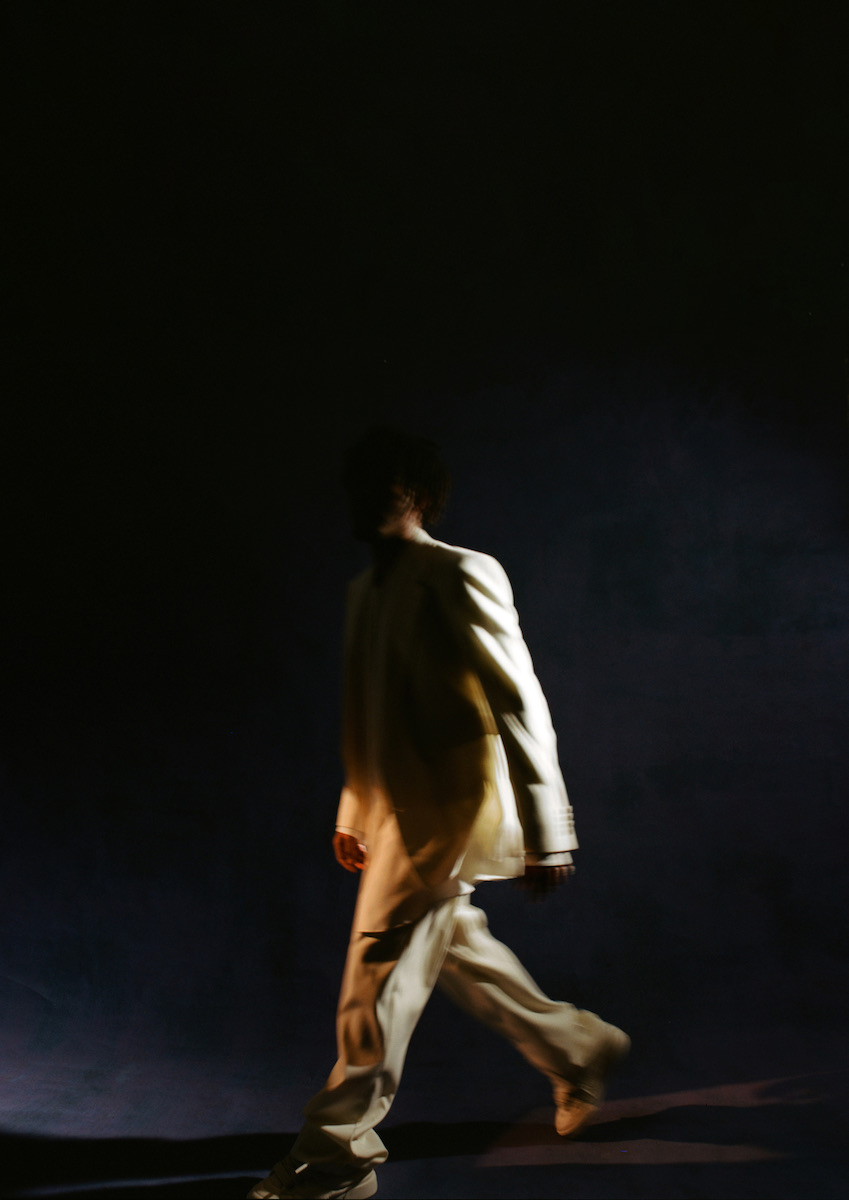
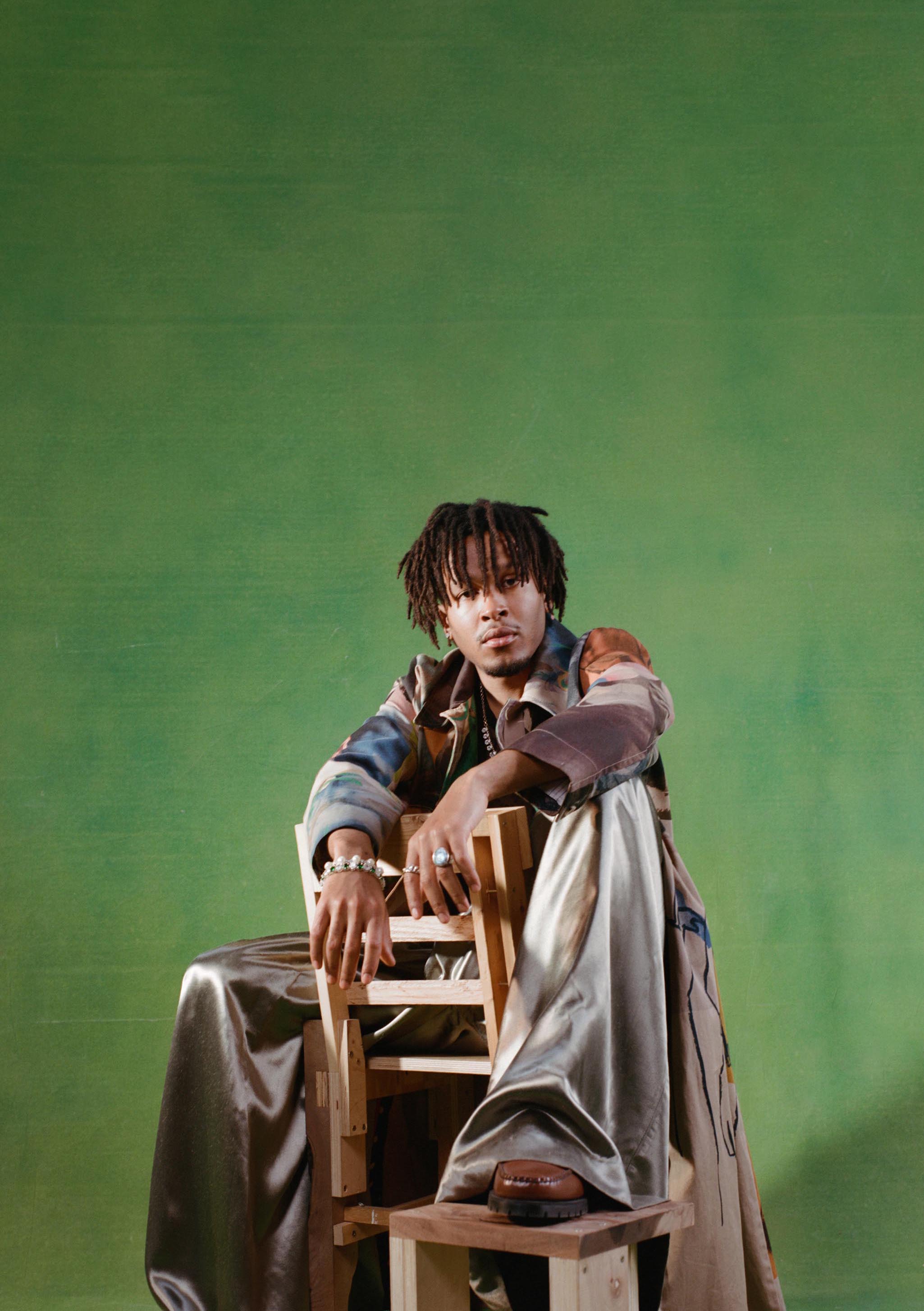
Left: Jacket, shirt, pants and shoes DOLCE & GABBANA, ring VEERT. Right: Coat PAUL SMITH, pants WILLY CHAVARRIA, top MARINE SERRE, shoes SEBAGO, necklace and bracelets VEERT, rings TALENT’S OWN.
What's your favorite beat on the album?
My favorite beat on the album is probably “DO u WANNA BE HIGH?” I'm picky. They all feel like my kids, but I love the drums on that song.
You got a favorite kid! It's all right.
Parents do, too.
What will your next album sound like?
I'm still finding the sound, but I definitely just want to make more fun shit that people can bounce to and vibe to. I definitely want to embody some of the more afrobeat world influence, but blending it with the funk, soul shit that I love.
I want to make a kind of dance record. I love seeing how people react when we put that song out “DO u WANT TO BE HIGH?”. It’s so fire. And the idea of people not even thinking about the lyrics kind of plays a little bit more into that main ethos of, like, I'm going to give you the message, but I want you to live with the song enough for you to stumble upon it as opposed to it being in your face and shit.
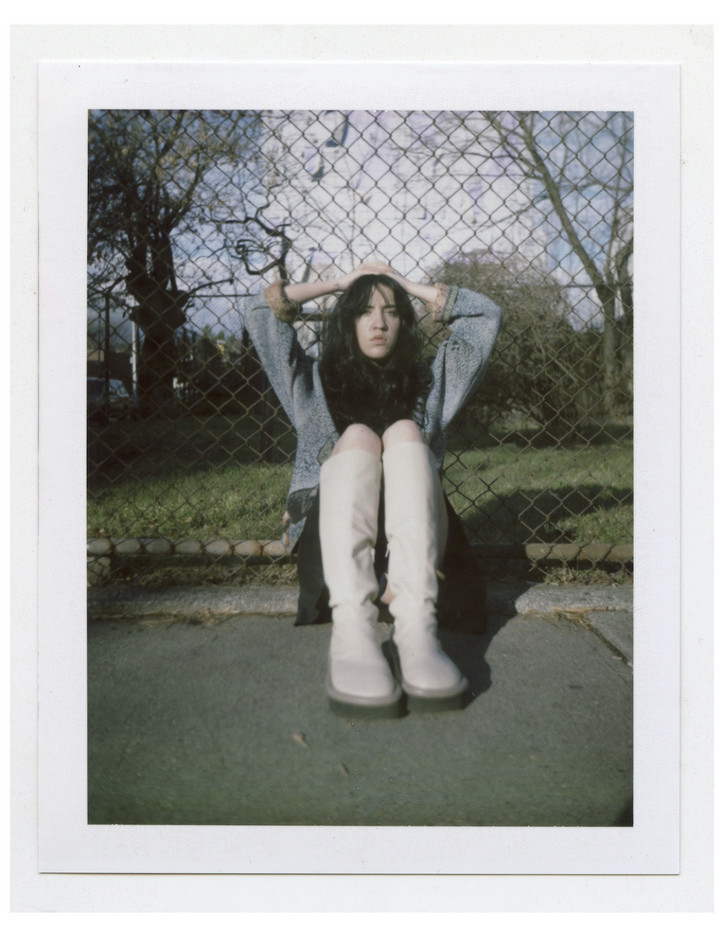
Ashley answers the zoom call with an immediate shot of her cat on her pillow — he is the size of the pillow.
office— He’s so big!
Ashley— Do you hear him purring? He’s so good. Living with furry creatures has actually changed my life for the better.
Where'd you grow up?
Nashville, Tennessee.
I can hear the Nashville in your music. What was that like? Did you have a musical upbringing?
Not really, to be honest. My family is pretty non-musical. My parents didn’t grow up putting on records, but I grew up listening to some good local radio stations. When I was like, five years old, I remember getting singing lessons. My parents’ reason for that wasn’t because I loved music, but because I had a really squeaky voice and they were like, “We gotta fix this” [laughs]
I didn’t have a stage mom, but I’m glad I didn’t. My parents were ultimately super supportive of whatever I wanted to do, even if they didn’t get it. My dad was a Cuban immigrant trying to be a doctor, but I will say they had great records at home — they just didn’t have a record player. So, they did have it in them — they just had to let it go when they had kids. I do remember though, last time I went home, my dad was like, “Have you heard of Wet Leg?” And I was like, “How the fuck do you know Wet Leg?” [laughs] Shout out my dad.
Shout out your dad. But that’s so funny. That would be like if my dad was like, “Have you heard of boygenius?” I’d be like, “Who taught you that?”
Growing up in Nashville helped me out, because so many people there are already musical because their parents worked in music. And I did take piano growing up, but I never really expected to do music at all. It’s just kind of something that happened and I went along with it. I was actually a musical theater girlie. I have a full-ass degree in musical theater, but I’ve worked a long time to kind of rid myself of those isms. Now, I’m not embarrassed by it like I used to be.
I will say, when I started making music, I had moved back to Nashville after living in Argentina for a year, and I had written a few songs there, but I wasn't trying to be a musician… I didn’t know what I wanted to do with my life. But I started dating Ian — we were together for three years — he’s in my band and helped me produce my first two EPs — he’s my best friend and he really helped me out of those isms. He would hear my songs and say, “I’m not saying this is bad, but you sound like a theater girl. Too much vibrato” And I was like, “I don’t want to sound like a theater girl!” So I kind of had to learn how to not sing like that.
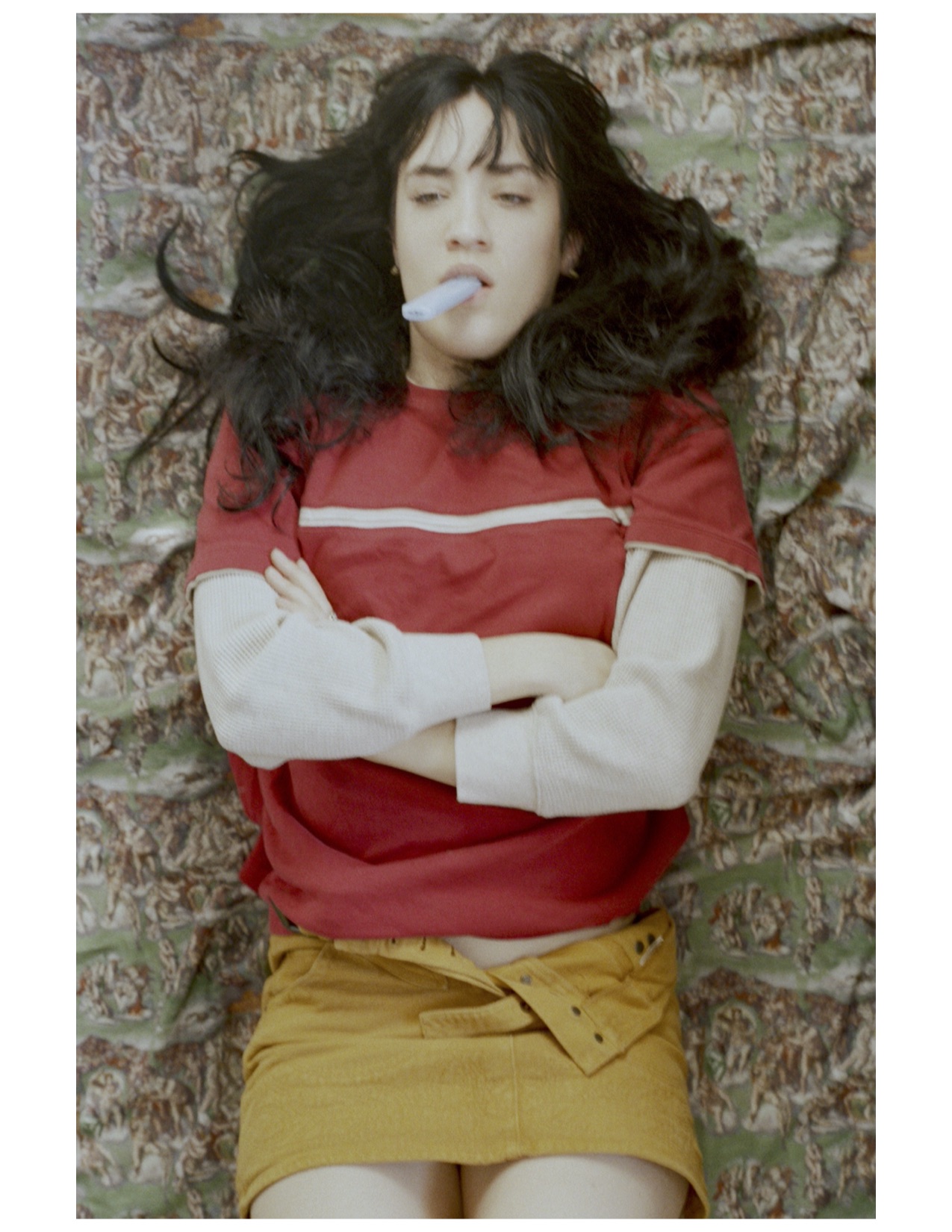
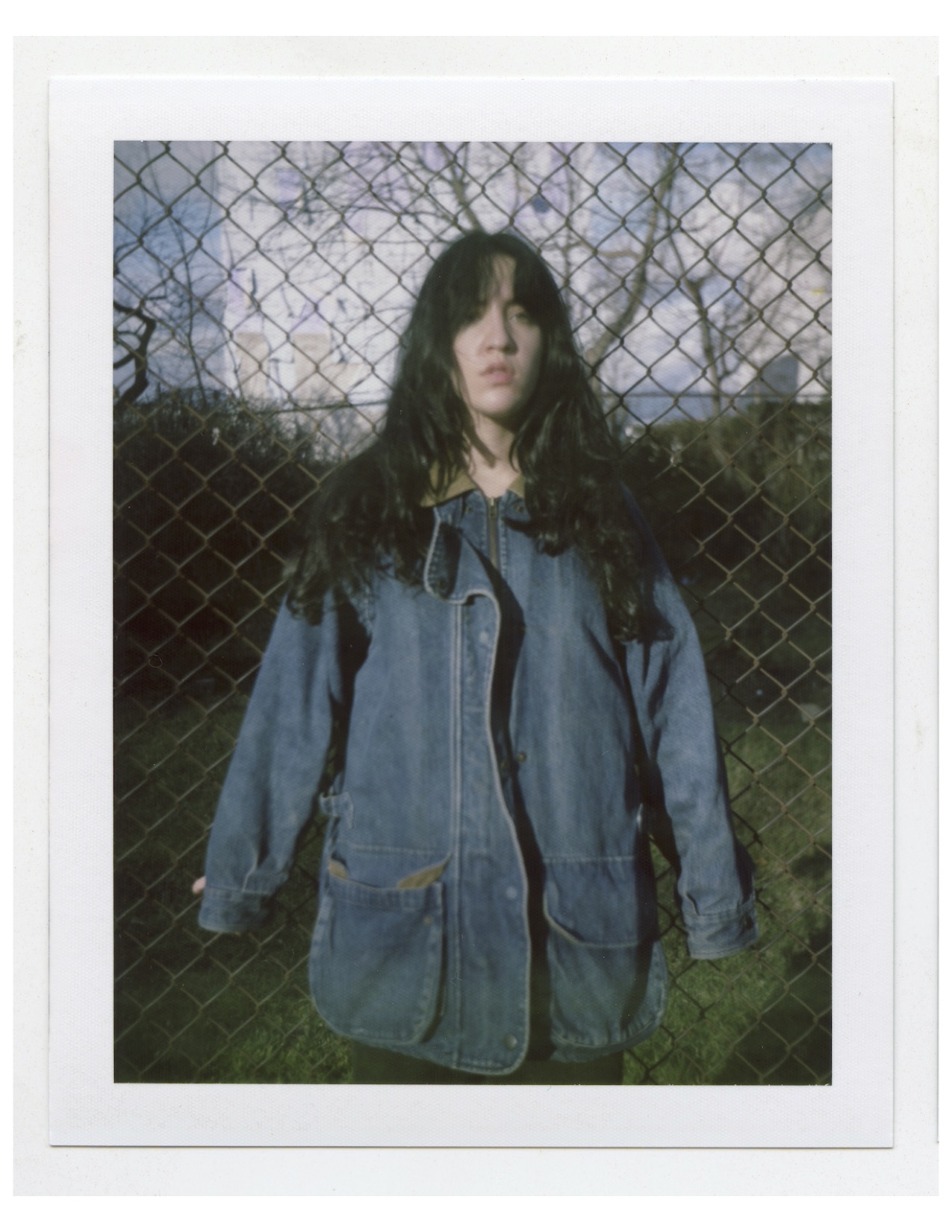
You said you were living in Argentina for a while, when did you come to New York?
After I graduated college in 2018, I went to Argentina for a little under a year. And when I ran out of money, then I moved back to Nashville. At the time, I still wanted to act, so I moved back home to save up money and figure out what I wanted to do. I stayed there for a little over two years and then moved here in the middle of 2021 or 2022. I’ve lived here for a little under two and a half years.
I’m actually flying out to LA at the end of this week to DJ my friend’s wedding and walk her down the aisle, and she’s my best friend from high school and we lived in Argentina together.
When you were writing songs in Argentina, was your sound different from the sound you have now?
Completely. I was writing very Joni Mitchell-esque folk music. When I started musical theater, they had a songwriting emphasis and I did that, but I was writing songs on piano. And when I moved to Argentina, I was like, “I’ll just bring a guitar and learn to play it.” That’s when I started writing on guitar, which changed my sound. And it’s just evolved over time as my interests have changed.
You taught yourself guitar just because it was easier to carry?
I would say that I still don’t really know how to play guitar. I don’t know what I’m playing. In Argentina, I brought it just as a means to write, adn I was just kind of moving my fingers around. That’s still kind of how I do it now. Eventually I wanna learn more guitar and be a better player, but I still love the freedom of not knowing what I’m doing.
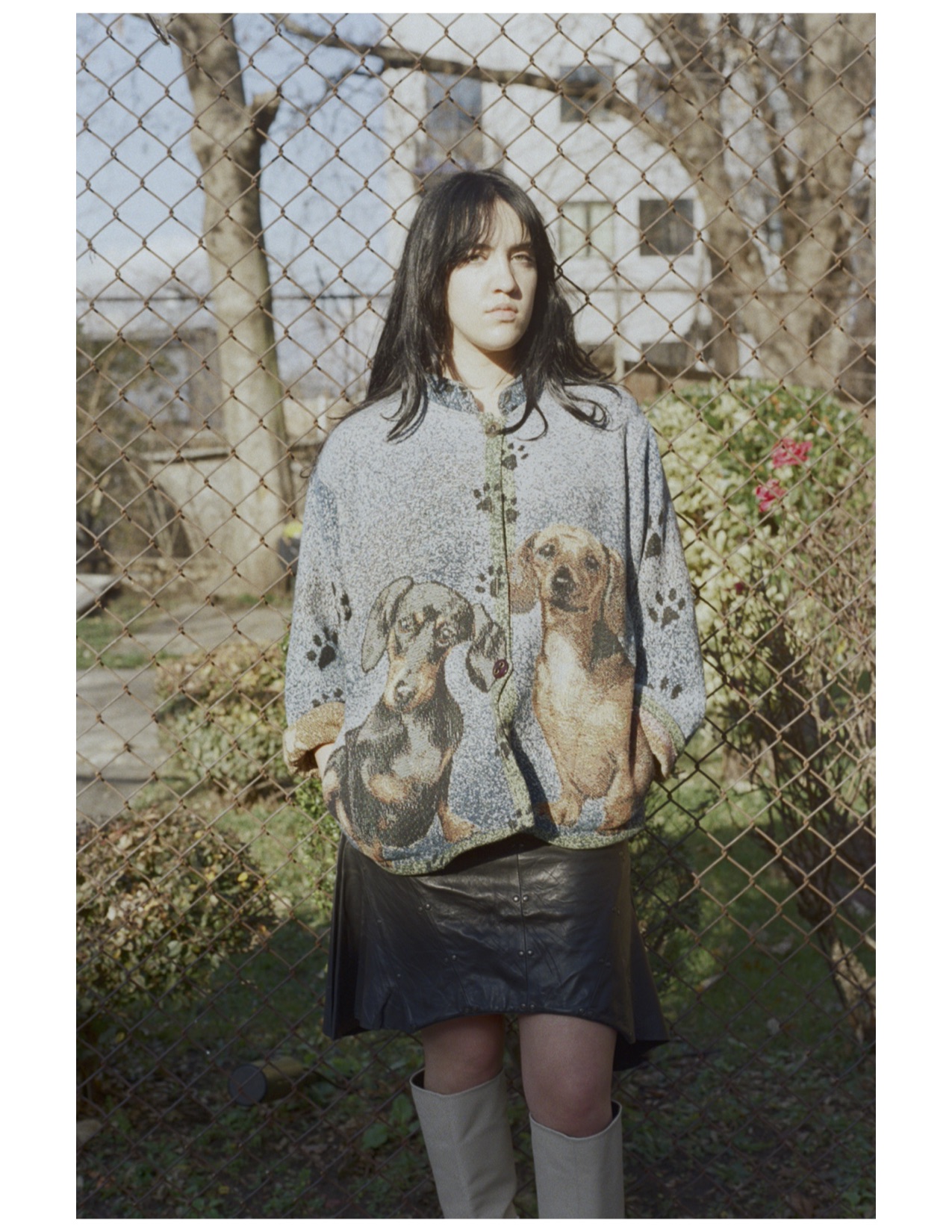
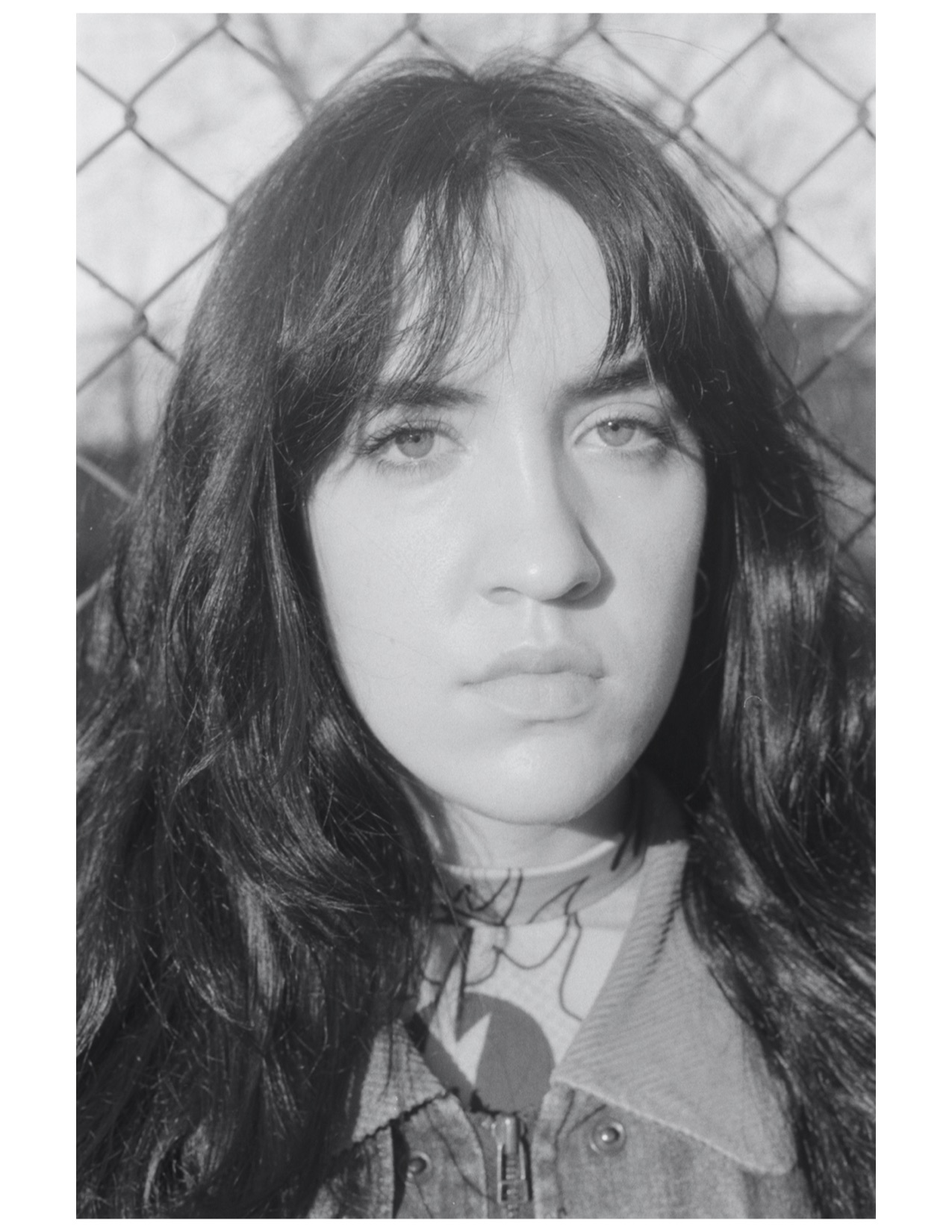
Where's the name from?
Honestly, I don't really know. It was kind of something that me and my friends used to call each other in college, and it was gonna be my first EP name. But Joseph was like, “Why don’t you just name your project Big Dumb Baby instead? It has more of a ring to it than your name.” And I think it’s kind of fitting. And it’s been good to have separation between my interpersonal relationships where I’m Ashley, and then this project where I’m Big Dumb Baby. It’s not too separate from who I am, but…
It’s good to have at least a little bit of demarcation. Especially when people only see you as an artist, or this public figure who has the capacity to give them something. Do people treat you differently as Big Dumb Baby versus Ashley?
No, not really — maybe because I’m so early on in my career that I don’t have a lot to give people.
Don’t say that!
No, you’re right. As a friend, I do have a lot to give people obviously. But in terms networking, I don’t know how much I have to give people. If they were trying to take something from me, I probably wouldn’t even notice just because I’m so “la di da.”
Honestly, the only weirdness I’ve ever gotten is at the beginning when people don’t understand my project. But I haven’t gotten that recently, or I’ve just learned how to get over it because I like the shit I’m making and I love my friends and the life I have. So I’m kind of unbothered by it.
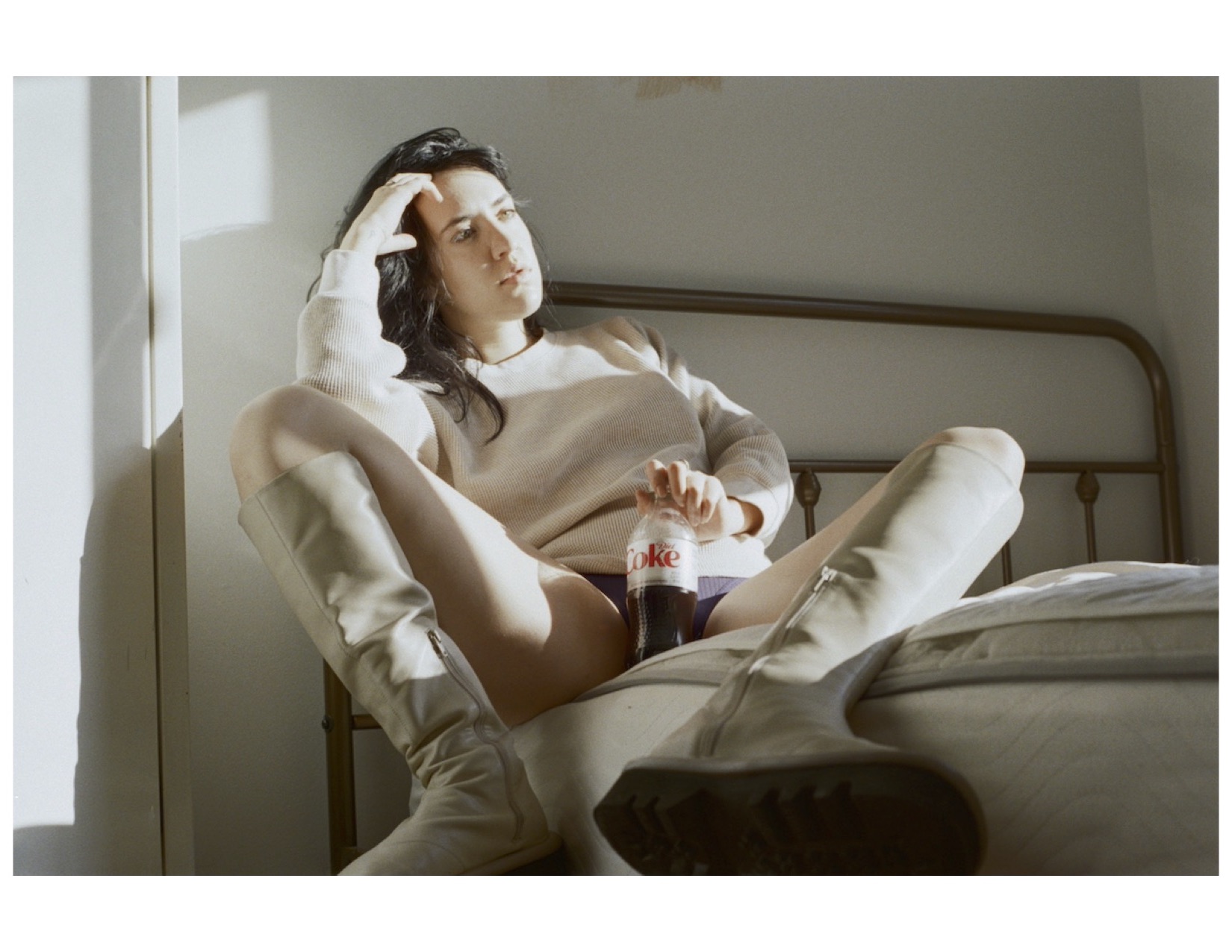
How’d you find yourself in SXSW?
I just submitted online. I think I was one of the later rounds of acceptances. I was just thinking, “This would be a cool thing for me to do, and it would be the right time in my career to do this,” because I’m not on a label, I don’t have a manager, I’m fully independent.
Are those things you want for the future?
For sure. But I’m doing fine on my own. I have Joseph’s help with all the creative shit, and honestly, he kind of is a momager — always hooking it up. I trust him with everything. He truly is the best and as soon as I make money, he’s going to be the first person I pay — besides my band, obviously. But last year, I saw a lot of people go and I didn’t even think to submit because I hadn’t even released my second EP yet.
But this year, I was like, “I have some stuff published about me, I have things to submit, I have a new EP…” So I just kind of went for it. I wasn’t really expecting anything because hundreds — I don’t even know how many people — submitted and I know a lot of people’s labels submit for them. So I wasn’t getting my hopes up, but it was a really nice acceptance email to get. It made me feel like I’m on the right track.
I'm really proud of you. Because that's major and you're doing that all on your own.
I’m really proud of myself too. And I give so much of my own money to this project. I work so much and make no money — you know how the streaming industry is. I feel like I hustle really hard and sometimes it’s hard to remind myself that something better is going to come, but I’m really happy about this. Even though I’m going to spend literally every penny I have to get there, I think it’ll be a good opportunity. And I’m going down with my band, who are my best friends — it’s just going to be fucking fun.
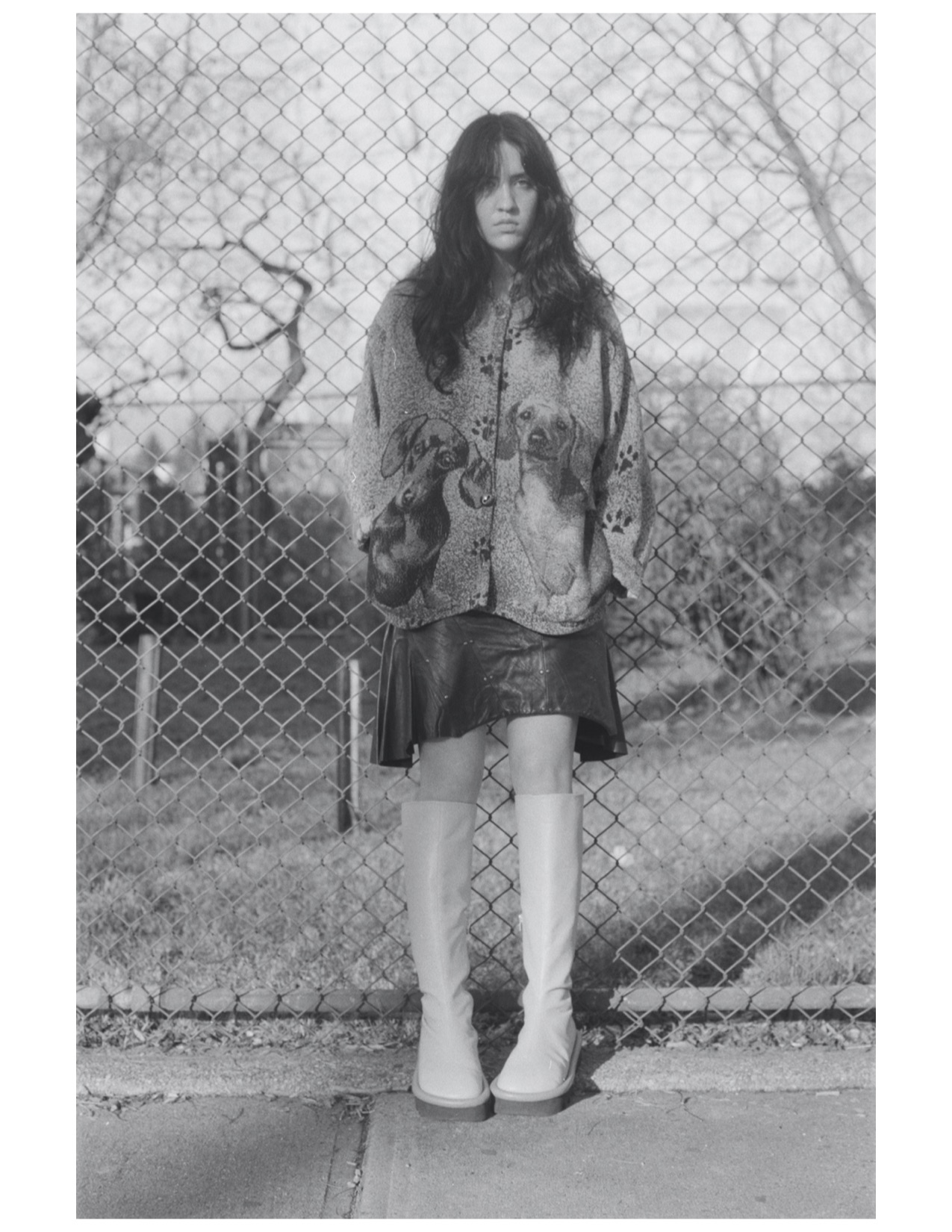
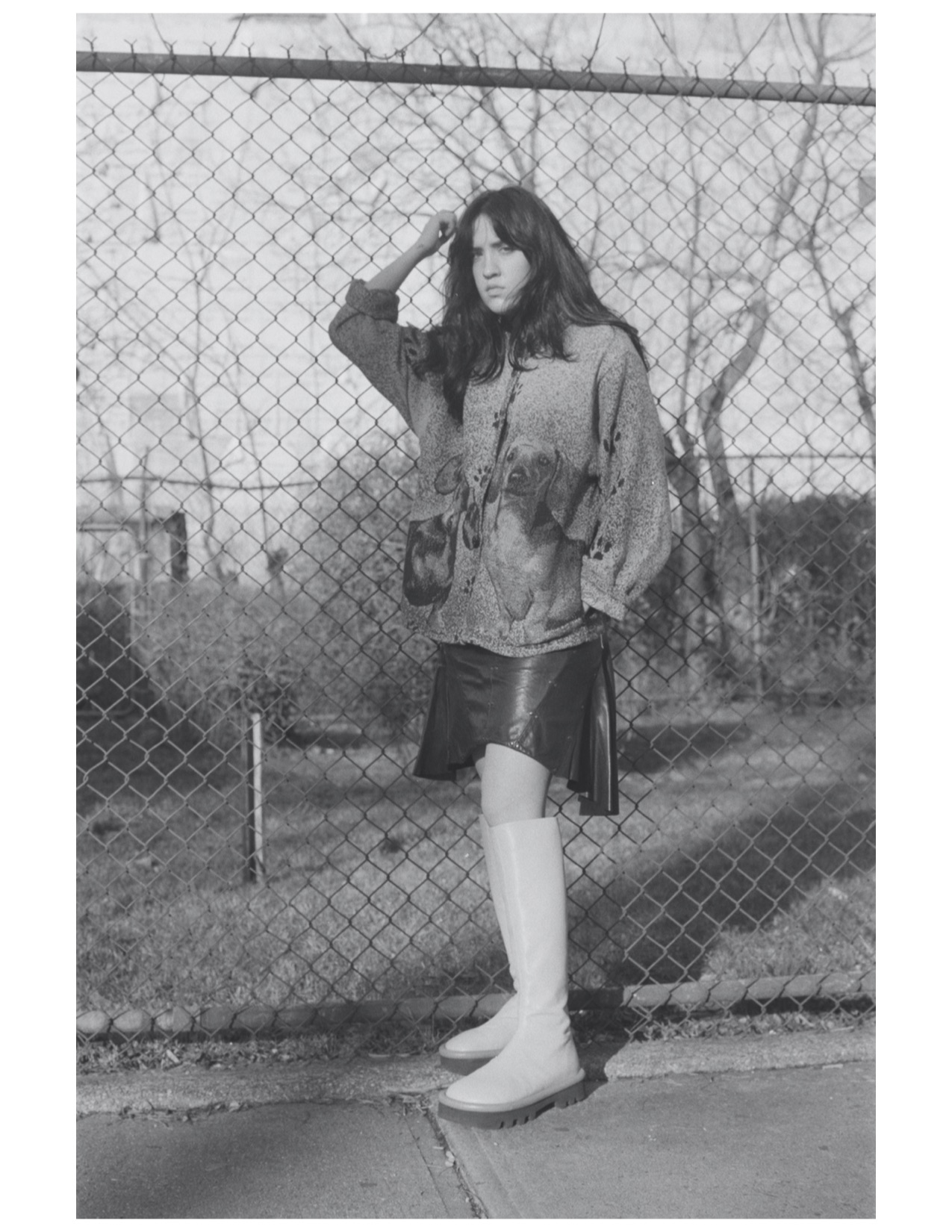
Most of your shows are free, aren't they?
Yes, and I love it that way. I never want to lose that line to my audience. I have fun playing music and I don’t want to lose that. And I’m really happy with the shit that I’m making.
And you're doing it all independently.
I don’t have someone vouching for me — I don’t have anyone at that table in the SXSW conference room, so they must have just liked the music or wanted to take a chance — but either way, I wouldn’t be there if I didn’t deserve it, which is a big win for me. I’m holding out and trying to do things the right way. I never want to try and play any games because that’s lame. For the past few years, I feel like I’ve just been able to put my best foot forward, and — why are you whimpering?
What?
Oh sorry [laughs] not you — the cat. But I think the reason I do free shit all the time is that it gets so boring when things are so self-serving. The reason we do music is because we like it. We should just play more music with friends and it should be fun. It doesn’t have to be a job all the time.
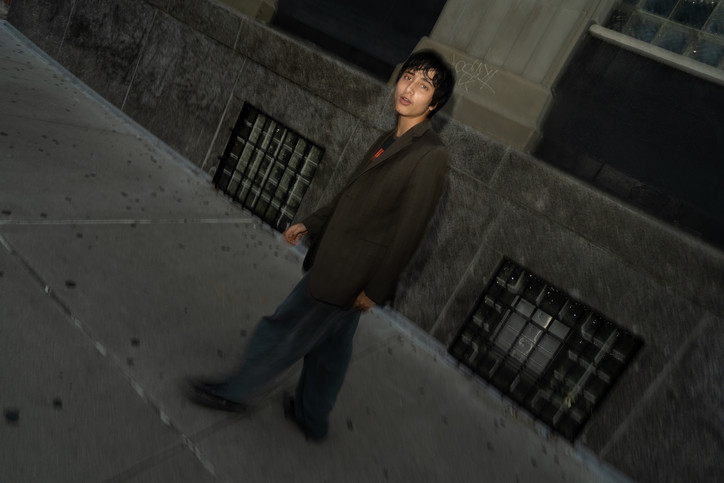
I first met Kali Flanagan, or Superfan, on a Friday night in East Village. He wore a suit jacket and shirt which read "Handsome Little Devil." Little, sure, but by the end of our conversation, Kali seemed to tower over me — expressing his thoughts with enough introspection and fluency to leave my jaw dropped in a pile of discarded gum and cigarettes on the New York City street.
And then you hear the music. Or more specifically, you hear “Sewn Up and Handsome.” Before listening, it’s imperative to find something nearby to hold onto, or else you’ll surely fall to your knees as I did. This single, which was released yesterday, marks the first part of a new sonic and lyrical exploration which releases in full, as an album, on June 28th.
The project prioritizes its depth over breadth, one which chronicles the process of stripping back to build up. Instead of the lush layers and heavy production found in his previous music under "Kali," his new trajectory manifests itself through a comparatively scarcer sonic palette, a decision which aims to make room for and amplify the newfound density of his lyrics. Read below for the full interview.
When did you start making music?
I started making music when I was 11. So I'd say roughly seven and a half, eight-ish years of writing stuff, and I started producing when I was twelve.
That’s pretty absurd. How could you even conceive of producing at that age?
I did all of the school of rock and orchestra at public school and jazz band from when I was five until I started being able to make my own stuff — before I got bored of just playing other people's songs. So it started with writing and then I was like, I want to listen to this. So I tried using GarageBand and then eventually worked my way up to Logic, which I still make demos in. I was making stuff, but I wasn't really caring about it until I was 14, and then I made the first project that I put out under my old project which was just my first name, Kali.
I was doing demos for that stuff and promoting it on Instagram and an A&R at this label network found me and signed me when I was 15, right before the pandemic hit and then I made that first project and started taking shit more seriously. It's funny how things just kind of started to click when I actually needed to make music in terms of an emotional outlook.
When you say “started taking shit seriously,” was it hard to maintain the feeling of play you felt when you were much younger making music? When you had the luxury of it being a private and personal endeavor. Considering that you’re now in a position where other people listening, labels are involved, etc., has it been difficult to stay true to that origin?
It's been a journey because I think in the context of a year — just the timeframe of a year and how the process of making music ebbs and flows within that year — there are points in time where I don't feel like making music. And when I was younger, I didn’t have the security of self, and I'm still learning to listen to my gut instincts, but I wasn't comfortable with that absence when it wasn't there and wasn't clicking. So that would be super frustrating, but then you end up forcing things and make things that you don't like. I’ve been super fortunate to be working with a label that honestly gives me complete creative control over my music and stuff, which is great because I know exactly what I want.
Yeah, and pretty rare too.
Yeah, very rare, and very rare in terms of their support as well. I'm super grateful, and I've been with them since I was 15. I say that it's been a journey because I’m about to finish my first full length, and all of the old music that I've put out under my first name is completely different to the new stuff that I'm making. All of the new stuff I've been making is super personal, my lyrics are pretty blunt, I'm using less instrumentation, and relying less on production to tell the story, even though I feel like I strengthened that muscle in past projects.
But I think in terms of the purity of your artistic expression being preserved, it's really about why you're making something, and where your head's at in terms of making decisions, and I feel like as I've grown up, and am still growing, but going through being a teenager and making music and growing in that sense at the same time, there’s that whole layer of proving yourself to other people. When I was younger that was a bigger part of the process than I realized. Of course inherently it's gonna be there for a little bit, especially when you grow up in an environment that's pretty competitive such as LA, and the way I was raised was to have really high standards for myself and be on all the time, but that's not sustainable, and you realize that's not what life is. Removing other people from my consideration in terms of making decisions, not in terms of collaboration, but in other facets has been really important. When I made this album, it felt like the first time that I was equally respected by the person I’d been working with — his name is Gabe Wax. So it doesn't feel like I'm going to change the way that I’m articulating myself when making music or writing songs for him, which is great. And the same goes with an audience or whatever — I think as soon as I realize that I'm catering to something that isn't what I want to do, I kind of cut it off.


When you were building the album up, was there an initial thematic or narrative through-line that helped dictate the process and approach, or did that come about naturally and spontaneously while making it?
When I'm working on any project, there's always a point where I’ve realized that I've done something that I haven’t done before that is exactly what I needed to make at that point in time, and I think that is a mission statement in itself, and I did have that for this project. It’s the first song I play live and the first song on the record — the song is called When You Come to LA. It was the first time where I felt like I was being honest with myself in the context of songwriting, and was feeling a lot of guilt and shame about a lot of different things and didn't know what to do with it because I wasn't able to project that onto somebody else's perception of me. So it was a moment where I had to look at myself in the mirror and be like, okay, let's address this. And that started the whole process of making this album, and the song sums up my process, because it's a collage of a ton of different things and how their synonymity exists, and that existing creates these feelings that can't be articulated in one word. They can be articulated by vague descriptors like guilt or shame, but there's all of these weird nooks and crannies of context that contribute to this feeling that are reemphasizing.
Totally. Does this new approach you’re taking in terms of expressing emotional ambiguity, ambivalence, and depth through lyricism one of the reasons why you decided to switch your stage name from Kali to Superfan?
Yeah, completely. And secularity as well. There's quite a few reasons. One of them being other musicians having the same name, which is honestly really surprising because I'm named after a Hindu deity of destruction and it's a rare name even in India, or at least it was when my mom named me. My grandma was like, you can’t name him that because it's too powerful, but she did anyways. Another part is that I noticed how I was presenting myself as an artist and how I was finishing songs with other people was not what I had intended for my expression and my outlet, and I think a huge realization I've had in the past year is I'm not actually a very show-off person. So for me to make my name and make it my artist project just feels weird. I also really enjoy the anonymity because it allows me to separate myself in a way that I can say all of this. Even though of course whenever you participate in the creation of something, it’s interwoven, it's a relationship between input and output and how you are living your life, etc., but it just allows me to be more honest and put less pressure on myself.
By having your name be an anonymous one, which also establishes separation, do you find yourself thinking about an alternate persona or aspects of performance art?
It’s kind of ironic because I feel like I am less so putting on airs of any sort or putting on a performance since I've been making music and performing it under Superfan. The name itself came to me as I was playing the last show as Kali and playing those songs. As I was playing the songs, it was the last time I played them, which was about a year ago, I just was feeling so disengaged as I was playing them. And I was like, I can't do this for the rest of my life. Afterwards the name came to mind because people were coming up to me and saying they were super fans and taking pictures with me and it triggered something because I was thinking about how I feel like a super fan a lot of the time. I feel like a super fan is an underdog or somebody that kind of feels almost guilty for knowing so much about somebody, or like, being so excited about something, and I feel that way in a lot of different aspects of my life. Especially music, I mean, I'm definitely always the person that if I see somebody whose music impacted me, I'm gonna say something.
That definitely connects to what you were saying earlier about how you don’t perceive yourself as a show-off — the name Superfan, and what the terms means, feels completely antithetical to vanity and boasting. By that same token, it seems to also underline your excitement and gratitude to be doing what you're doing.
Exactly. I've been playing a ton of shows, and started playing songs from the album in April of this year, and before that I had never done stripped down sets of my material before. It was the like the complete opposite of what I’d been doing before. Where before I was essentially putting on a show — I would wear a suit, etc., now I just show up in my normal clothes and play my songs that are very journalistic in a way.
It seems that you have a pretty substantial clarity of mind in terms of staying attentive to the “why” aspect of what you’re making and how that process comes into fruition. But to jump from singles/EPs to an entire album is a completely different animal. What what would you say have been the biggest considerations you’ve had to take into account while building a more holistic and expansive project?
I think a lot of it is narrative. And it's tough because you don't really know what you're trying to say until you're way past the point of even talking about it. But I think the biggest thing is being attentive and interactive with the environment that isn't music, at least to me that's been a huge thing. When I've made EPs and music as a younger person, I was experiencing things for the first time, which I'm still experiencing, but my depth of the kinds of feelings I'm trying to articulate now is much grander. So it's less straightforward than an EP about a one sided, unrequited romance that lasted over a summer.
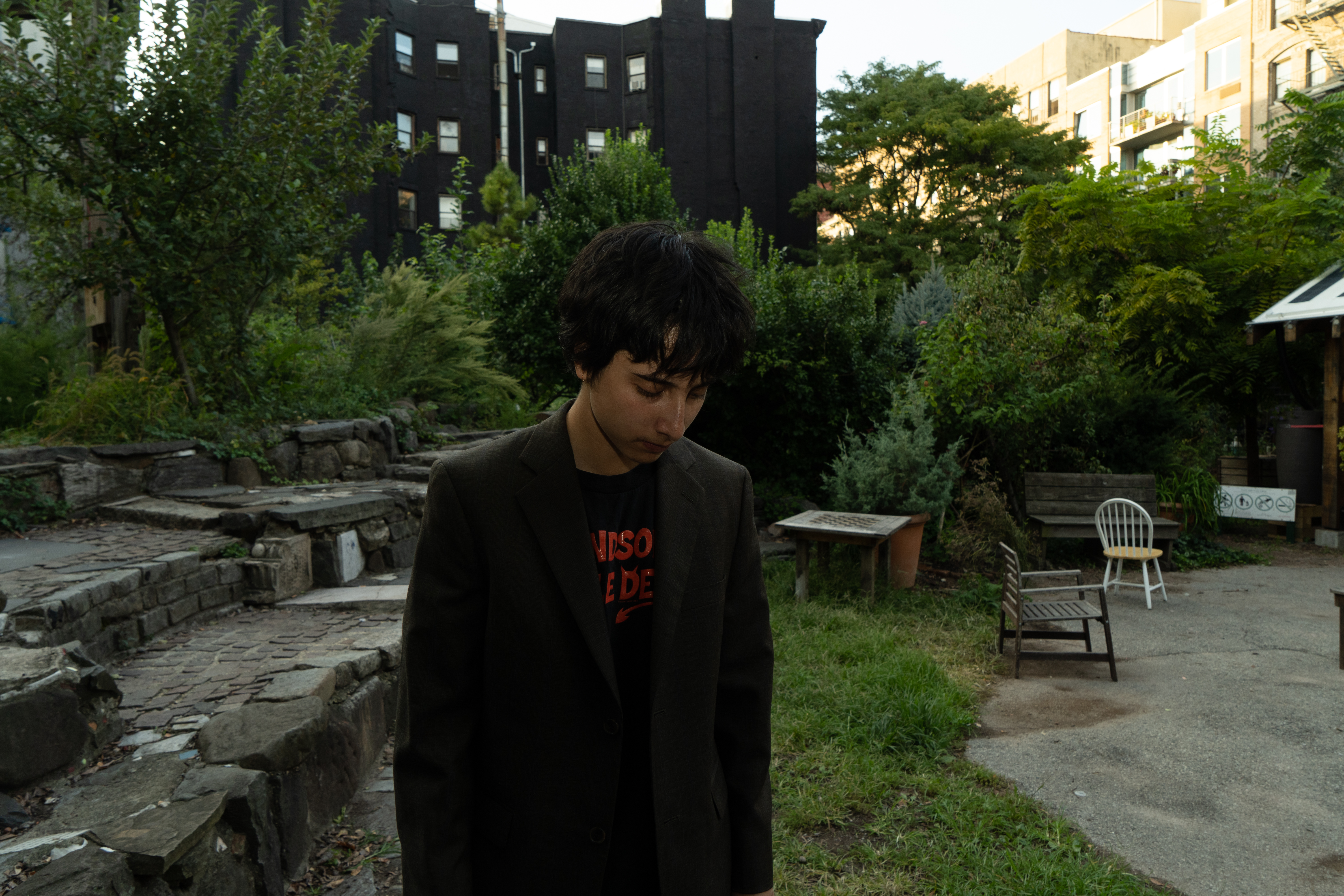

Which came first, the reinvention of your sound, or the changing of your artist name? Did one give you more courage to do the other, or did both facets bloom at the same time?
It’s funny because changing my artist name is sort of metaphorical considering that I’m trans, so the changing of the artist name also represents this change in my identity and how I present myself to people, which is now much more honest.
My voice has changed so much, and on the record itself, you hear it change throughout the making of the songs depending on the different times we've been recording. As I've been doing the shows, people have watched my range shift a ton and heard it crack a lot, but now it's kind of stabilizing. When I was in high school, I would play at the smell a lot and would play those first songs that I really felt connected to. It was really positive in terms of continuing to make music and feeling empowered and not worrying so much about a musical product, but instead enjoying it for what it is.
So I wanted to live that through songs that I felt like were impacting me in the same way. So that was a big part. I also think that visibility is a huge part of it, and although the name change is sort of ironic, because it’s an alias, it does allow for more visibility in a sense. If somebody's referring to me as Kali, they're talking to me as a person, not somebody that's performing. There has to be a little separation, because it's complex relationship to be on a stage interacting with an audience that's a couple feet below you. That relationship in itself, the name change, transitioning, and making music that is pretty vulnerable, I've realized the importance of saying things that you'd wish other people would say. I wish I heard other people say this so I would feel less alone, you know? There's this whole thing of idolization and there’s a line because being young and being highly susceptible to being pigeonholed for a number of reasons, whether that be my age, my gender, my ethnicity, where I'm from, whatever, it’s hard to maintain visibility without commodification. But it's so important because if you don't have visibility then there's no connection. And people need to see you so they can see themselves.
It’s a very fine line to walk, expressing the things which contribute to your identity, both as an artist and as a person, but in having such things exposed, opening the door for their own commodification without consent. Even though this is a worry, it doesn’t seem to have effected the fact that you’ve been playing live a lot more than usual, what’s changed? Why are you more inclined to perform now?
I just love it. My album isn't even finished but it’s just really healthy for that process to flourish because it can be really easy to feel isolated and be like, I don't know what people are going to think, blah, blah, blah. Especially with the music that I'm making, it's so personal that I had to challenge myself to let myself be seen. It's been really rewarding.
Has performing live helped inform the actual production or recording of the album?
Totally. When I make demos, I essentially try to make as close to the final recording as I can, within my bounds. That’s been a problem in the past because I've hired big name producers, but in knowing that I was going to work with them made me work harder. The problem with that is then there's nothing for them to do because I already had a vision. When I started making the album, I was still doing that, and there wasn’t a lot of clarity to the sonic palette. When I was planning the first set, I got my electric guitar and had a ton of pedals, and loaded up a sampler and was doing all this shit. But the songs are already so lyrically dense that I was doing too much and didn’t like that approach to performing them. At the same time I had just started playing my songs for my friends, and instead of showing them a produced track, I would just play it for them acoustically. After they heard those stripped down versions, they responded by saying I should just continue to perform it in this way. So after I played a few shows doing that, I felt there was something here. So I started working with my producer, Gabe, and after those performances, we felt that we needed to first base the album around me and a guitar and then build up from there so the songs could be as good as they were bare bones.
Was it daunting to pretty drastically amend your process which had become habitual after years of writing and producing, especially in terms of this new lyrical vulnerability?
As I've been finishing these songs, it's been a little draining to a certain extent because there's a lot of admittance in these songs of things that maybe I've had a hard time being honest with myself about. Additionally, there are other people involved in the depictions of my experiences, whether that be my relationships with other people, my family, or my friends. So that's also an interesting line to walk that makes it all the more hard. It definitely felt like an of bravery in some ways, but you're gonna have to cross a boundary if you want to make something that impacts you — it has to be controversial to a certain extent. Whether that be in terms of sonics or what you're talking about. It's important that not everybody likes it, because then what’s the point?
